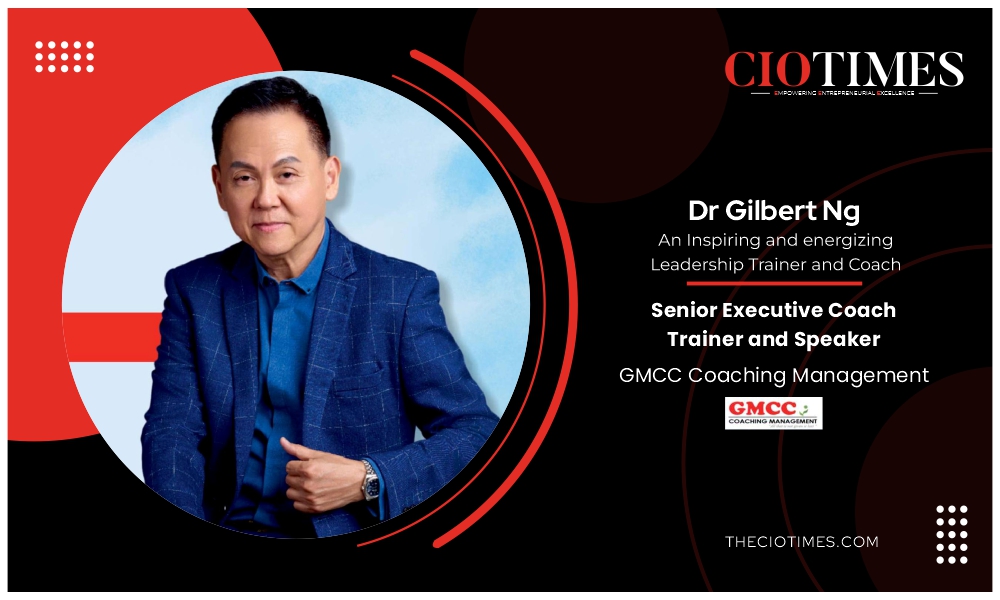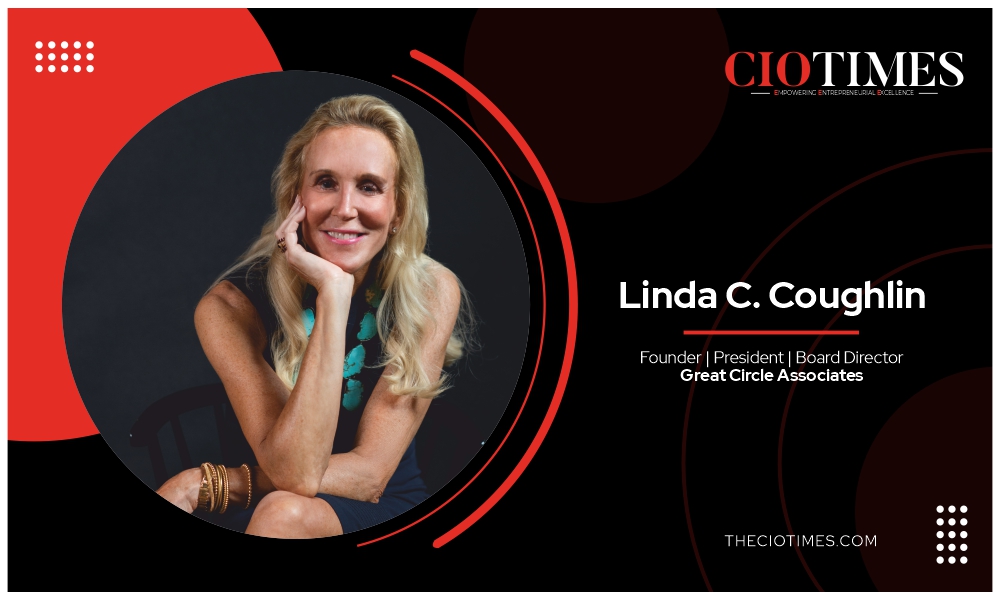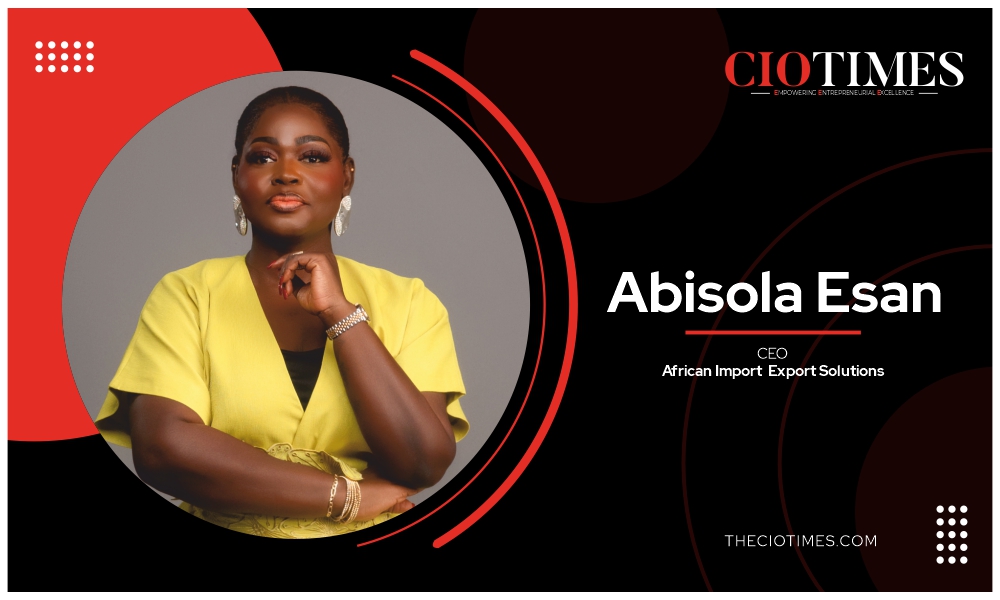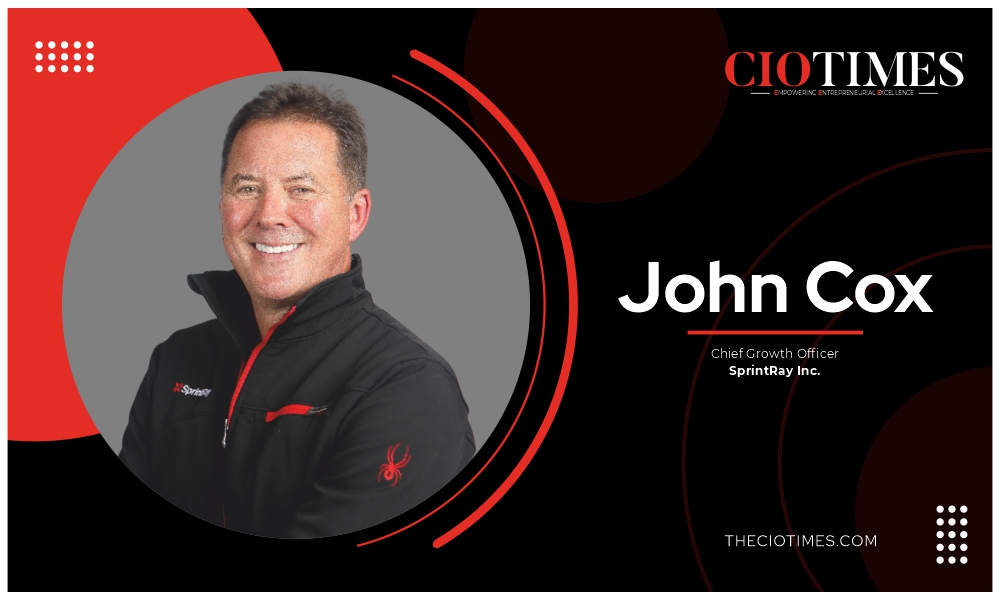Dr. Gilbert Ng is a distinguished figure in executive coaching and leadership development. With a rich background that spans various industries in the Asia-Pacific region, Dr. Ng has dedicated over a decade to fostering leadership excellence. He is a celebrated author, having penned ‘The Indubitable Leadership Principles,’ and is a John Maxwell Certified Coach, Teacher, and Speaker.
His academic achievements are equally impressive, holding a Doctorate in Human Resource Management and serving as an Ambassador for LIGS University. Dr. Ng’s professional credentials include being a Professional Certified Coach (PCC) by the International Coach Federation (ICF), a Certified Training Professional (CTP) by ARTDO International, a CeMBA – Commonwealth Executive Master of Business Administration (WOU) by Wawasan Open University, and a member of several prestigious institutes such as The Institute of Leadership & Management (ILM) and the Chartered Institute of Marketing (CIM) UK.
Dr. Ng’s corporate experience is extensive, with a history of impactful roles in the financial, investment, corporate training, and automotive sectors. His leadership prowess has been recognized through numerous awards. He received many awards during his tenure in the banking industries – Best Branch, Best Deposit, and Best Regional Managers. He also received the Emeritus Leadership Scholar award and was named the top Innovative Leader of the Year for 2020-2021 by the Leadership Excellence Awards. He has also been acknowledged by the British Publishing House Ltd, as a “Successful People in Malaysia 2022” and won the CEO Executive Coaching Awards 2022 – Leadership Coach & Motivational Speaker of the Year – Malaysia.
In 2009, he founded GMCC Coaching Management, through which he has transformed the leadership behaviors and practices of over a thousand leaders via experiential workshops and executive coaching. Dr. Ng’s unique coaching approach is designed to ignite leaders’ motivation, passion, and intuition, guiding them to insights that translate into impactful actions
The Transition
Dr. Ng started his professional journey in the Financial Industry in Malaysia working in various roles within marketing and business development. During his professional journey from an Executive to a branch director, he gained valuable experience in areas such as team leadership, yearly business budgeting, and strategic planning. After he left the banking profession, he became a regional trainer for an investment company and his last corporate position was the Dealer Principal for Volvo car company. While in different industries holding management positions for more than 3 decades and gaining a lot of success, he started to feel a sense of fulfillment was missing.
During his time in the corporate world, Dr. Ng found himself naturally gravitating towards mentoring and guiding his colleagues, helping them navigate challenges and develop their skills. This experience sparked an interest in coaching and leadership development.
Motivated by a desire to make a more direct and meaningful impact on individuals’ growth and development, he decided to pursue certification in training while still working in his corporate role. He started to provide corporate training to clients during weekends, honing their skills and building a reputation as a trusted corporate trainer. Along the way, he noticed many learners were very motivated during the workshop. However, when they get back to their workplaces, they are not able to sustain their motivation and apply the new skill set in the real world.
Through a period of research with his learners from various industries, Dr. Ng found out that most of his learners’ companies did not provide follow-up and support after they completed their learning in the workshops. This finding inspired him to explore “How to sustain learners’ motivation after a 2-day high impact workshop” as his goal in 2007.
He started a small group of learners where he provided a workshop and followed through with 3 sessions of coaching to support and motivate them. The result was commendable, and this is where his motivation that congruent with his passion. The calling to grow and develop future leaders sparked a desire in him to design a comprehensive leadership series program.
The Inception
In 2009 Dr. Ng decided to leave his full-time corporate role and formed his enterprise, GMCC Coaching Management. He successfully closed a deal with a multi-national company in China, with his Leadership Development series program.
Through the years of training and coaching their leaders, the management witnessed positive transformations in their leadership performances. He worked with this client for 7 years and also gained other clients in China through the word-of-mouth referral by his first client. He gradually gained diverse clients from various industries such as Government bodies, Medical, Banking, Insurance, Manufacturing, and hospitality services.
Dr. Ng also continued to develop his training and coaching skills and obtained certification from the John Maxwell Team and ICF Professional Credential Coach. With these world-class credentials, he now has clients from Indonesia, Cambodia, Taiwan, China, Vietnam, Thailand, and Malaysia. He works as a full-time leadership coach, leveraging his corporate experience, empathy, and coaching expertise to support his clients (more than 10,000) in reaching new levels of success and fulfillment. He finds immense satisfaction in helping others discover their strengths, overcome obstacles, and lead with authenticity and purpose.
Effective Programs
GMCC’s Leadership Development program is designed to provide comprehensive support and growth opportunities for aspiring leaders and seasoned executives alike. What sets its program apart is the integration of personalized one-on-one coaching sessions following each learning module.
Here is how the program upholds its uniqueness in the market:
- Tailored Approach: Understanding that every leader has unique strengths, challenges, and goals, GMCC customizes its coaching sessions to address individual needs identified during the learning modules. This tailored approach ensures that participants receive targeted support to maximize their development.
- Continuous Feedback Loop: The program fosters a culture of continuous improvement through ongoing feedback. Participants receive personalized feedback from their coaches after each module, helping them reflect on their progress, celebrate achievements, and identify areas for growth.
- Accountability and Support: GMCC’s coaches serve as accountability partners, supporting participants in staying committed to their development journey. They provide encouragement, guidance, and practical strategies to help leaders overcome obstacles and achieve their goals.
- Holistic Development: In addition to covering essential leadership competencies such as communication, decision-making, and team building, the program emphasizes holistic development. They explore topics such as emotional intelligence, resilience, and work-life balance to nurture well-rounded leaders who can thrive in today’s complex business environment.
- Sustainable Results: By combining structured learning modules with personalized coaching, GMCC’s program delivers sustainable results. Participants not only acquire new skills and knowledge but also develop the self-awareness and confidence to apply them effectively in real-world situations.
Corporate Experience in the Coaching Environment
Dr. Ng’s varied leadership experience has taught him to understand and connect with people, helping them grow deeply. He uses his strategic thinking to assist clients in defining their goals and planning for success. His ability to communicate and influence motivates and empowers those he guides. He has learned to adapt and be resilient, which allows him to support clients through changes and challenges. Lastly, his knack for team building and fostering collaboration helps clients improve their leadership skills and achieve group success.
His experience as a people and thought leader in various industries has shaped his coaching approach by instilling empathy, strategic vision, effective communication, adaptability, resilience, collaboration, and team-building skills. These skills make him well-equipped to support clients in achieving their leadership potential, navigating complex challenges, and driving sustainable success in their personal and professional lives.
Balancing Self-awareness with Action-oriented Coaching
As a credential coach and JMT certified trainer/speaker, juggling between self-awareness and action-oriented coaching is not easy, nevertheless, Dr. Ng has been very cautious in balancing both the self-awareness and action-oriented coaching with the following actions: –
– Start with self-awareness: He encourages his clients to reflect on their strengths, weaknesses, values, and goals. He helps them develop a clear understanding of themselves, their motivations, value, and their areas for growth. He uses techniques such as journaling, self-assessment tools, and reflective questioning to facilitate this process.
– Set clear goals: He works with his clients to establish specific, measurable, achievable, relevant, and time-bound (SMART) goals that align with their values and aspirations. By defining clear objectives, he provides direction for action while also fostering self-awareness about what they want to achieve. His framework is GROW in this process; i.e. Goal, Reality, Options, and What’s Next.
– Identify barriers: Dr. Ng helps his clients identify any internal or external barriers that may be impeding their progress. These barriers could include limiting beliefs, fears, lack of skills, or environmental constraints. He encourages them to explore how their thoughts, emotions, and behaviors may be influencing their ability to act.
– Encourage experimentation: He encourages his clients to experiment with different strategies and approaches to achieve their goals while emphasizing the importance of acting and learning from both successes and failures. By experimenting with new behaviors and habits, they can gain valuable insights into their strengths and areas for improvement.
– Provide feedback: This is crucial for him to offer constructive feedback to help his clients to gain a deeper understanding of their strengths and development areas. He has to be specific, timely, and supportive in his feedback, focusing on behaviors rather than personal attributes. He encourages them to reflect on the feedback and consider how they can apply it to enhance their performance.
– Promote self-reflection: He always incorporates regular opportunities for self-reflection into his coaching sessions. He encourages his clients to pause and evaluate their progress, challenges, and learnings.
– Adjust coaching approach: He is flexible in his coaching approach based on the needs and preferences of his clients. Some individuals may benefit from more structured, action-oriented coaching, while others may require a greater focus on self-awareness and introspection. Adapting his style to meet the unique needs of each client is his coaching strategy.
– Celebrate progress: He recognizes and celebrates his clients’ achievements and milestones along their coaching journey. Acknowledge their efforts and growth, reinforcing positive behaviors and motivating them to continue acting towards their goals.
“This integration of self-awareness and action-oriented coaching approaches, I could help my clients develop the insights, skills, and motivation needed to achieve meaningful and sustainable change,” he says.
Common Leadership Challenges in the Asia-Pacific region
Dr. Ng has been working in the Asia-Pacific region since 2008. He has trained and coached over 10,000 people, mostly management-level employees in 7 countries. While the leadership challenges in this region can vary depending on the specific country, culture, and industry, there are some common challenges as well.
In the Asia-Pacific region, leaders face challenges such as cultural diversity, which can lead to communication issues and trust problems within teams. Hierarchical organizational structures often limit innovation and employee involvement. The region’s rapid economic and technological changes demand quick adaptation from leaders. Finding and keeping skilled workers is tough due to high competition and industry-specific skill shortages. Additionally, navigating complex government regulations and maintaining ethical business practices is crucial. Leaders must also engage effectively with stakeholders like government officials to manage regulatory challenges proactively.
As a trainer and coach in this environment and at times, Dr. Ng was also appointed as a consultant to certain companies. In his workshop and coaching sessions, he always creates awareness and encourages his learners to reflect and act according to their situations with the following mentoring and coaching content based on his observations.
To the leaders, he suggests embracing cultural intelligence by understanding and respecting different cultures to foster open dialogue and inclusion. He advocates for empowering employees and decentralizing decision-making to boost innovation and creativity. He also emphasizes the importance of agility and flexibility to adapt to rapid business changes. Investing in talent development is key to attracting and nurturing top talent. Building strong relationships with stakeholders is essential for navigating regulatory challenges. Finally, he encourages adapting leadership and business strategies to local contexts in the Asia-Pacific region.
Ensuring Lasting Changes
Dr. Ng observed that many learners’ motivation faded quickly once they got back to the workplace. The root cause is that there is no supporting platform in most organizations.
His leadership series program incorporates a 2-day workshop and 2 follow-up one-to-one coaching sessions, to explore further and deeper on learner’s application of learning. He noticed many learners encounter challenges in all aspects when they are modifying their leadership styles and behaviors. The obstacles could be they are not comfortable modifying their leading approach, or their direct reports were not receptive to the change.
His follow-up coaching sessions also include mentoring and he must be resourceful to work with them on their options for further improvement. His past decades of leadership roles in the corporate environment for a few different industries are very useful in his training, coaching, and mentoring for his clients.
“The follow-up coaching/mentoring sessions are essential and crucial to sustain their consistency in developing and improving their leadership skills. What has satisfied me in my profession as a coach/trainer is I continue to receive favorable feedback from my clients in this region. Besides, I have a lot of repeating clients engaging me to train/coach/mentor their people. Most of my new clients are referred by my past and existing clients which is a great achievement in what I am doing now,” he says.
Embracing Change in a Dynamic Environment
Over his years of working with numerous learners, Dr. Ng has observed that those who adapt well to the dynamic nature of today’s work environment share certain qualities. They are resilient, maintaining a positive attitude and self-care even when faced with setbacks. They embrace a growth mindset, see challenges as learning opportunities, and are always open to developing new skills. Flexibility and open-mindedness are key, as they remain receptive to new ideas and ways of working.
Continuous learning is a part of their routine, ensuring they stay up-to-date and relevant. They also build strong networks for support and collaboration, communicate effectively, especially during changes, and are proactive in anticipating and preparing for change. Lastly, they are self-aware, understanding their responses to change and managing their behavior accordingly.
“These successful individuals incorporate these strategies into their approach to work and life, they enhance their ability to adapt to change effectively and thrive in today’s dynamic and unpredictable work environment,” he says.
Valuable Lessons learned about Leadership
As an Emeritus Leadership Scholar, Dr. Ng has learned that effective leadership is multifaceted. It involves adapting to various situations with appropriate leadership styles, whether it be transformational or servant leadership. Success hinges on strong communication skills, such as active listening and persuasive speaking, which help in resolving conflicts and building relationships. Strategic thinking and decision-making are crucial for aligning actions with organizational goals.
Emotional intelligence plays a vital role in managing emotions and motivating others. Building and leading high-performing teams requires fostering a culture of collaboration and empowerment. Navigating change is essential, and this involves understanding change management principles and promoting adaptability. Ethical leadership is about integrity and transparency, while personal and professional development focuses on continuous self-improvement. Innovation and creativity are key to driving progress, and global leadership skills are necessary for leading diverse teams in an interconnected world.
“Though leadership topic is wide, I personally feel I have gained a widening perspective in my leadership understanding and practices from the Emeritus Leadership program,” he says.
Staying Updated
To stay current in the training and coaching industry, Dr. Ng constantly engages in learning and development, attending events, and earning certifications. He subscribes to publications and websites for the latest insights and trends. Networking is key, so he connects with professionals through various platforms and events. He utilizes online resources like blogs and podcasts and stays active on social media to follow industry news.
Regular web searches and alerts keep Dr.Ng informed about new developments. Feedback from clients and colleagues is invaluable for him to understand industry needs. Joining professional associations provides additional resources and networking opportunities. Mentorship offers insider knowledge, and he always experiments with new methods to meet the evolving demands of his clients.
“If we want to be a market leader. We must adopt a proactive approach to staying updated on industry trends and developments, we can enhance our effectiveness as a trainer or coach and better meet the evolving needs of our clients and participants,” he says.
Foreseeing Trends
Predicting the exact trends in leadership development and coaching over the next decade can be challenging. In Dr. Ng’s opinion, several overarching themes are likely to shape the field and some trends that may emerge. The future of leadership development and coaching may be influenced by several key themes: the growing use of digital tools for training, an increased focus on mental health and resilience, and a stronger emphasis on diversity and inclusion. The rise of remote work will likely shape how these programs are delivered, with more virtual skill-building. Leaders will need to be agile and adaptable, with personalized learning experiences becoming more common. Ethical and purpose-driven leadership will gain importance, as will coaching skills for all leaders. Collaborative learning communities and a commitment to continuous, lifelong development will be central to helping leaders navigate the fast-paced changes in the business world.
These predictions provide a glimpse into the potential future of leadership development and coaching, it is important to remain flexible and adaptable as new challenges and opportunities emerge in the coming decade. Leaders and organizations that prioritize learning, innovation, and growth will be best positioned to succeed in an increasingly complex and dynamic world.
A Culture of Leadership Excellence
Organizations aim to foster a culture of continuous learning and leadership excellence in today’s fast-paced and ever-changing business landscape. Dr. Ng opines that to cultivate such a culture, organizations should have leaders who actively engage in and promote learning. They should provide diverse learning opportunities and create a safe space for open communication and innovation. Encouraging feedback and reflection, supporting career development, and recognizing learning efforts are also important. Integrating learning into daily work, fostering a growth mindset, ensuring easy access to learning resources, and measuring the impact of learning initiatives can further enhance this culture. These strategies help organizations adapt to change and encourage professional growth among employees.
“By implementing these strategies, organizations can create a culture where continuous learning and leadership excellence are valued, supported, and ingrained in the fabric of the organization. This not only enhances employee engagement, satisfaction, and retention but also fosters innovation, agility, and long-term success,” he says.
Expectations in the Coming Years
Dr. Ng at GMCC is preparing himself in the coming years with more adaptable and flexible in responding to changes in the market, customer preferences, and business environment. He is looking to develop agile processes and workflows that allow the organization to pivot quickly and seize. He is to put the needs and preferences of customers at the center of the training and coaching offerings. He’ll be listening to feedback, gather insights, and tailor services to address specific client challenges and objectives. He is looking forward to building long-term relationships with clients based on trust, transparency, and value delivery.
Dr. Ng would like to maintain high standards of quality and excellence in the delivery of training and coaching services. GMCC will continue to implement robust quality assurance processes, conduct regular evaluations and assessments, and solicit feedback from clients to ensure continuous improvement and customer satisfaction.
GMCC will be differentiating its training and coaching enterprise by focusing on niche markets, specialized expertise, or unique value propositions. It will clearly articulate the benefits and value proposition of its services to prospective clients and demonstrate how our offerings meet their specific needs and goals.
Dr. Ng is looking forward to establishing the organization as a thought leader in the training and coaching industry by producing high-quality content, thought leadership articles, white papers, and research reports. He will be sharing insights, best practices, and innovative approaches to training and coaching through blogs, webinars, and speaking engagements to position GMCC as an authority in the field.
He’ll also be integrating sustainability and social responsibility into the business practices by adopting environmentally friendly practices, supporting social causes, and promoting diversity, equity, and inclusion. He looks to demonstrate their commitment to corporate social responsibility and ethical leadership to attract clients who share similar values.
“With our decade of services that have served more than 10,000 learners in the Asian Region, continued in implementing these strategies. We can position our training and coaching enterprise for sustained competitiveness and success in the next decade, while also making a positive impact on clients, employees, and society,” concludes Dr. Gilbert Ng.




